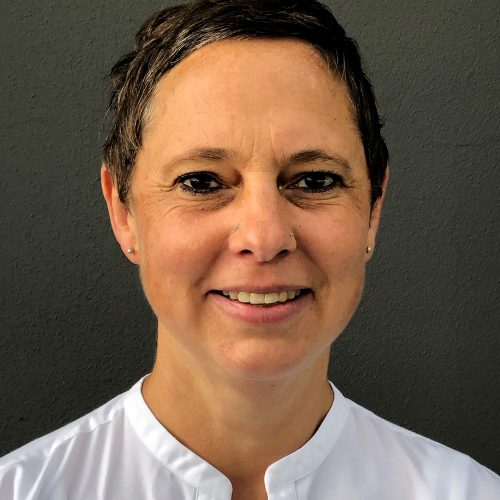All our past fellows
Throughout the years we have welcomed many great artists and researchers as fellows.

ifeoluwa aboluwade
Ifeoluwa Aboluwade is a literary scholar with a background in imperial and literary history, early modern English theatre, critical digital humanities, (trans)cultural translation and adaptation, black diaspora studies, postcolonial literary criticism, and gender and intersectionality. She works at the Africa Multiple Cluster of Excellence and is a lecturer at the University of Bayreuth. Ifeoluwa has received many international awards and fellowships, such as Fulbright and DAAD scholarships, most recently receiving the Shakespeare Association of America-Folger Shakespeare Library Short Term Fellowship (2022/2023).
At gd:c, Ifeoluwa is investigating the histories, patterns and genealogies (dis)connecting Shakespearean drama and early modern West Africa through the topoi of the trickster and warrior. Drawing on diverse texts, the project shows that comparing tricksters and warriors across both literary cultures engenders a deeper understanding of their historical and ongoing entanglements, recasting the significations and transcultural spectres that haunt Shakespeare. It will also illuminate the tension between absence and presence of early modern English performances, especially in terms of race, gender, and class.
Click HERE for a list of publications.
Click HERE to email Ifeoluwa.

ifeoluwa aboluwade
Click HERE to email Ifeoluwa.
Click HERE for a list of publications.
Ifeoluwa Aboluwade is a literary scholar with a background in imperial and literary history, early modern English theatre, critical digital humanities, (trans)cultural translation and adaptation, black diaspora studies, postcolonial literary criticism, and gender and intersectionality. She works at the Africa Multiple Cluster of Excellence and is a lecturer at the University of Bayreuth. Ifeoluwa has received many international awards and fellowships, such as Fulbright and DAAD scholarships, most recently receiving the Shakespeare Association of America-Folger Shakespeare Library Short Term Fellowship (2022/2023).
At gd:c, Ifeoluwa is investigating the histories, patterns and genealogies (dis)connecting Shakespearean drama and early modern West Africa through the topoi of the trickster and warrior. Drawing on diverse texts, the project shows that comparing tricksters and warriors across both literary cultures engenders a deeper understanding of their historical and ongoing entanglements, recasting the significations and transcultural spectres that haunt Shakespeare. It will also illuminate the tension between absence and presence of early modern English performances, especially in terms of race, gender, and class.

cathrine bublatzky
Cathrine Bublatzky is a media anthropologist and senior lecturer at the University of Tübingen. She researches diaspora and exile, archives, visual and digital media cultures, photography, art, activism, and the aesthetics and politics of belonging throughout Europe, South Asia and the Middle East. Cathrine authored Along the Indian Highway: An Ethnography of an International Travelling Exhibition, a monograph published by Routledge. Her project Contemporary Photography as Cultural Praxis of Iranians in the European Diaspora, which she will continue at global dis:connect, was awarded a scholarship by the Baden-Württemberg Foundation.
During her fellowship at global dis:connect, Cathrine will research a private archive of personal and political photographs from 20th-century Iranian exiles. Assuming that photographs are mobile, constantly connecting and disconnecting times, places and people, Cathrine is concerned with politically sensitive photographs from the archive of an Iranian exiled artist and activist, and the questions of why and how photography functions as a central medium for global communication, information and memory processes as well as identification and belonging in the exiles’ everyday. She inquires how archives and photography contain traces of time and belonging for their audiences in and beyond exile as a cultural field of simultaneously dis:connective and interruptive social interactions.
Click HERE for a list of publications.
Click HERE to email Cathrine.

cathrine bublatzky
Click HERE to email Cathrine.
Click HERE for a list of publications.
Cathrine Bublatzky is a media anthropologist and senior lecturer at the University of Tübingen. She researches diaspora and exile, archives, visual and digital media cultures, photography, art, activism, and the aesthetics and politics of belonging throughout Europe, South Asia and the Middle East. Cathrine authored Along the Indian Highway: An Ethnography of an International Travelling Exhibition, a monograph published by Routledge. Her project Contemporary Photography as Cultural Praxis of Iranians in the European Diaspora, which she will continue at global dis:connect, was awarded a scholarship by the Baden-Württemberg Foundation.
During her fellowship at global dis:connect, Cathrine will research a private archive of personal and political photographs from 20th-century Iranian exiles. Assuming that photographs are mobile, constantly connecting and disconnecting times, places and people, Cathrine is concerned with politically sensitive photographs from the archive of an Iranian exiled artist and activist, and the questions of why and how photography functions as a central medium for global communication, information and memory processes as well as identification and belonging in the exiles’ everyday. She inquires how archives and photography contain traces of time and belonging for their audiences in and beyond exile as a cultural field of simultaneously dis:connective and interruptive social interactions.

joël glasman
Joël Glasman focuses on West and Central Africa in the 20th century, particularly colonialism, governmentality, humanitarianism and the production of power as framed by praxis theory and science and technology studies. His publications inquire into social classifications produced by state institutions, international governmentality and private corporations. He further engages with the theory of global history, global norms and colonialism. His last book, Les humanités humanitaires. Manuel d’autodéfense à l’usage des volontaires (2023), reflects on the practical use of the humanities.
Joël’s project, Empire of waste, looks at imperialism as a regime of waste built on material exploitation and racial inequalities. Immobilisation, hiding and destruction of waste played a crucial role in imperial domination, as indicated by recent research on toxicity, waste dumping and radioactivity in Africa. It investigates two faces of the ‘Empire of Waste’. First, it analyses French corporate strategies of externalisation of waste and pollution. Second, it scrutinises forms of discard labour used by colonial corporations: forced labour, corvée, prison labour, wage labour, informal labour and child labour.
Click HERE for a list of publications.
Click HERE to email Joël.

joël glasman
Click HERE to email Joël.
Click HERE for a list of publications.
Joël Glasman focuses on West and Central Africa in the 20th century, particularly colonialism, governmentality, humanitarianism and the production of power as framed by praxis theory and science and technology studies. His publications inquire into social classifications produced by state institutions, international governmentality and private corporations. He further engages with the theory of global history, global norms and colonialism. His last book, Les humanités humanitaires. Manuel d’autodéfense à l’usage des volontaires (2023), reflects on the practical use of the humanities.
Joël’s project, Empire of waste, looks at imperialism as a regime of waste built on material exploitation and racial inequalities. Immobilisation, hiding and destruction of waste played a crucial role in imperial domination, as indicated by recent research on toxicity, waste dumping and radioactivity in Africa. It investigates two faces of the ‘Empire of Waste’. First, it analyses French corporate strategies of externalisation of waste and pollution. Second, it scrutinises forms of discard labour used by colonial corporations: forced labour, corvée, prison labour, wage labour, informal labour and child labour.
Associated Fellows
Archive past fellows






